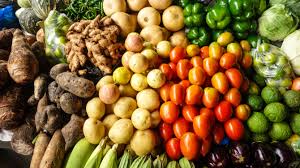‘Innovate, Digitise Agriculture for Africa’s food Security’
Africa needs comprehensive agricultural transformation through digital innovations to cushion itself from climatic shocks and other headwinds for sustainable and resilient food systems in collaboration with private sector, Rwanda has advised.
Stakeholders in African agricultural converged in Kigali, Rwanda for the annual 2024 Africa Food Systems (AFS) themed: “Innovate, Accelerate, and Scale: Delivering Food Systems Transformation in a Digital and Climate Era,” arguably to radically transform African food systems to enhance local production, resilience to climate change, and uplift livelihoods amid declining economic growth in Sub Saharan Africa.
Prime Minister Dr. Edouard Ngirente, officiating at the three-day-Africa Food Systems Forum (AFS Forum) reaffirmed Rwanda’s resolve to drive the sector’s transformation agenda on the continent and help shape the future of the sector through innovations in collaboration with the private sector to facilitate adaptation and foster resilience against headwinds including drought.
Premier Ngirente, in stressing the importance of the AFS in redesigning and shaping the future of agriculture in Africa and driving progress towards sustainable and resilient food systems, challenged African Governments and other policymakers to devise and implement policies, aided by digital technological applications.
Africa needs bold and ambitious and foolproof policies and strategies to create an environment conducive to private sector investments. There is, too, an urgent need to derisking the agriculture sector through the promotion of digital technology and innovation in order to attract more youth in this sector.
The call for sustained collaboration with private sector in all African countries would further accelerate the promotion of a more resilient and equitable food system on the continent. This will help counter diseases including malnourishment common among children and has gravely impacted on the socio-economic development.
It was vital to leverage digital technologies and adopting climate-resilient practices to build inclusive food systems. At the same occasion, Hailemariam Dessalegn, Chair of the AFS Forum Partner’s group, challenged youths to take the lead in agricultural transformation for the continent to attain sustained food systems.
“With emerging African talents and innovative solutions, scaling up adaptation and replication is feasible, but requires substantial action and investment, particularly from the private sector,” he stated.
According to AFS, as of this year, youth make up the largest share of Africa’s population – about 60 percent of the continent’s 1.2 billion people are below 25. However, together with women, who account for nearly half of the agricultural labour force, young people are among the most marginalized demographics, often left out of enhancement opportunities.
Without the influential role of these two groups, it argues it will be impossible to achieve sustainable development goals by 2030, especially ending poverty and hunger.
SNV, one of the key players in agriculture development, efforts are underway to implement initiatives that include youth and women across all aspects of Africa’s food system transformation – from a position of contributing to influencing policy; facilitating accessing modern agricultural inputs and financial services to leadership in trade, including cross-border trade.
SNV strives to fosters the urgency, confidence and voice of young people through the development of soft skills, business acumen and technical skills. By facilitating access to markets, finance and assets, and by forging strategic partnerships, we help create an inclusive and sustainable environment.
Its further strives to amplify the voice of youth, incorporating green and digital jobs, focusing on market sector growth, transforming systems, and promoting gender equality and social inclusion. SNV prioritises youth employment and entrepreneurship in our work in Africa and Asia.
The forum attracted over 5,000 delegates, including business leaders, investors, government officials, and farmers, to unlock investment opportunities and drive food systems transformation across Africa.
It is used as a forum for creating innovative policy mechanisms, financing initiatives, and advanced technologies to address climate impacts, digital gaps, and food waste. The AFS is a vital platform for advancing agricultural excellence and promoting sustainable food systems on the continent.
Photo Credit: Premature Media



